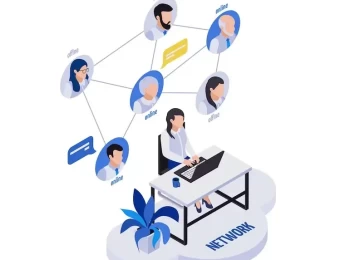In healthcare, technical knowledge alone isn’t enough. Healthcare professionals need strong soft skills to interact effectively with patients, families, and colleagues. These skills build trust, improve patient outcomes, and create healthier work environments.
This course focuses on communication, empathy, teamwork, conflict resolution, and emotional intelligence - essential tools for any healthcare worker looking to deliver quality care in high-pressure settings. By the end, participants will feel more confident handling real-life interactions with clarity, compassion, and professionalism.
By completing this course, participants will be able to:
- Understand the importance of soft skills in patient-centered care.
- Communicate clearly and respectfully with patients and team members.
- Manage stress and maintain professionalism under pressure.
- Apply emotional intelligence in daily work situations.
- Resolve conflicts and give constructive feedback.
This training is ideal for:
- Nurses and nurse assistants.
- Physicians and specialists.
- Pharmacists and lab technicians.
- Medical students and interns.
- Allied health professionals.
- Hospital administrators and front-desk staff.
The course combines interactive presentations, healthcare-specific role plays, case studies, communication games, group discussions, reflection exercises, and downloadable resources to help apply soft skills in real-world settings.
Day 5 of each course is reserved for a Q&A session, which may occur off-site. For 10-day courses, this also applies to day 10
Section 1: The Value of Soft Skills in Healthcare
- What are soft skills and why they matter.
- How soft skills impact patient outcomes.
- Balancing compassion and professionalism.
- Overview of key soft skills for medical teams.
Section 2: Effective Communication in Clinical Settings
- Listening actively to patients.
- Delivering difficult news with care.
- Non-verbal communication and bedside manner.
- Communicating with diverse populations.
Section 3: Teamwork and Collaboration
- Building trust within multidisciplinary teams.
- Roles and responsibilities in collaborative care.
- Giving and receiving constructive feedback.
- Conflict resolution within clinical teams.
Section 4: Emotional Intelligence and Self-Awareness
- Understanding emotional intelligence (EQ).
- Recognizing your emotions and triggers.
- Practicing empathy and compassion.
- Handling criticism and staying grounded.
Section 5: Stress Management and Resilience
- Common stressors in healthcare.
- Strategies to manage workload and emotions.
- Building mental and emotional resilience.
- Preventing burnout and promoting well-being.
Section 6: Ethical and Professional Behavior
- Respect, confidentiality, and trust.
- Professional conduct in high-pressure situations.
- Setting boundaries with patients and coworkers.
- Accountability and integrity in practice.
Upon successful completion of this training course, delegates will be awarded a Holistique Training Certificate of Completion. For those who attend and complete the online training course, a Holistique Training e-Certificate will be provided.
Holistique Training Certificates are accredited by the British Accreditation Council (BAC) and The CPD Certification Service (CPD), and are certified under ISO 9001, ISO 21001, and ISO 29993 standards.
CPD credits for this course are granted by our Certificates and will be reflected on the Holistique Training Certificate of Completion. In accordance with the standards of The CPD Certification Service, one CPD credit is awarded per hour of course attendance. A maximum of 50 CPD credits can be claimed for any single course we currently offer.
- Course Code IND5 - 176
- Course Format Classroom, Online,
- Duration 5 days













